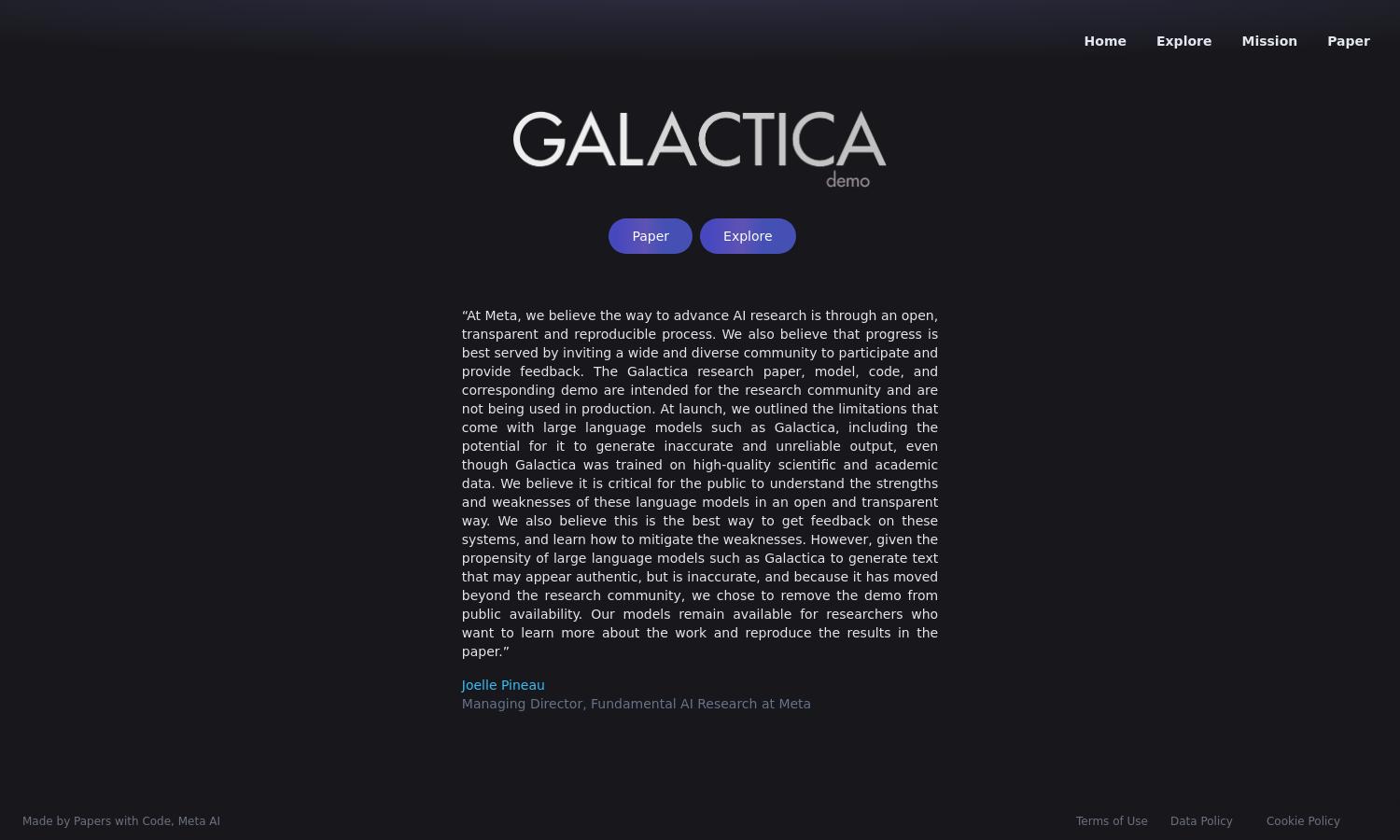Galactica

About Galactica
Galactica is designed for researchers interested in advancing AI through transparency and collaboration. This innovative platform allows users to explore the limitations and strengths of large language models. By providing access to research papers and models, Galactica promotes understanding and fosters community feedback.
Galactica offers free access to its research papers and models. Users can engage with the platform at no cost, contributing to open AI research. While there’s no tier-based subscription, researchers benefit from available resources to test and reproduce results from the Galactica research.
Galactica's user interface features an intuitive layout that fosters easy navigation through research materials. Its clean design allows users to smoothly access papers, models, and demos, enhancing the overall browsing experience and ensuring that even complex information is easily digestible for researchers.
How Galactica works
Users begin by visiting Galactica's website to explore its offerings. After navigating the main interface, they can access various research papers and AI models. The platform allows for a deep dive into AI capabilities, encouraging interaction and feedback to refine the research process effectively.
Key Features for Galactica
Open Research Access
Galactica’s open research access is a standout feature, allowing users to explore extensive AI models and research papers. This fosters a collaborative environment where researchers can learn from each other and contribute feedback, enhancing the study of AI’s strengths and weaknesses.
Community Feedback Mechanism
Engaging the research community is key with Galactica's community feedback mechanism. This feature invites users to share insights on the AI models, promoting collaborative improvements and a better understanding of their functionalities, making the research process more effective and inclusive.
Transparency in AI Limitations
Galactica emphasizes transparency in AI limitations, educating users about the potential inaccuracies of large models. This focus helps researchers understand the pitfalls of AI, enhancing their critical evaluation skills and leading to improved outcomes in AI research and application.
You may also like:








